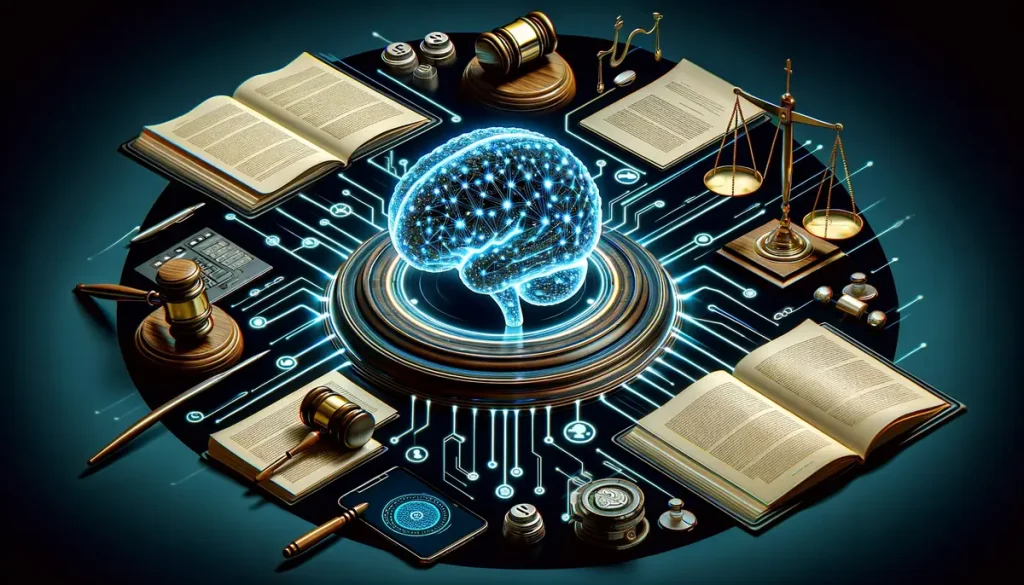Artificial intelligence (AI) is reshaping the legal landscape, transforming traditional practices and paving the way for a more efficient and streamlined legal industry. With the advent of generative AI, legal professionals are witnessing significant changes in how they conduct research, analyze contracts, and manage documents. However, amidst this technological revolution, the question arises: will AI eventually replace lawyers?
Read More: Protection Against Robocalls and Prerecorded Calls
AI’s Role in the Legal Industry
AI, particularly generative AI, is revolutionizing the legal industry by automating tedious tasks and improving overall efficiency. Studies have shown that legal services are among the industries most susceptible to occupational change from AI advancements. According to economists at Goldman Sachs, up to 44 percent of legal work could be automated by emerging AI tools, highlighting the transformative potential of this technology.
- Paperwork Automation: AI tools can read, analyze, and summarize large volumes of legal documents, significantly reducing the time and effort required by legal professionals. Platforms like Casetext and Latch leverage AI to streamline document analysis and summarization, allowing lawyers to focus on higher-value tasks.
- E-Discovery: AI facilitates e-discovery processes by efficiently searching for and retrieving case evidence from digital formats. By utilizing AI tools, legal professionals can conduct comprehensive searches across multiple data sources, accelerating the legal process and ensuring no crucial information is overlooked.
- Contract Analysis and Document Generation: AI assists in contract analysis by reviewing contracts and identifying potential risks or compliance issues. Additionally, AI-powered platforms can generate legal documents based on specific requirements provided by lawyers, offering a preliminary draft that can be refined as needed.
Will AI Replace Lawyers?
1. Augmentation, Not Replacement
Despite the advancements in AI technology, it is unlikely that AI will completely replace human attorneys. While AI excels at tasks like document analysis and contract review, it lacks the nuanced understanding and judgment required to provide comprehensive legal advice. Instead of replacing lawyers, AI is poised to augment the capabilities of legal professionals, allowing them to focus on higher-value tasks such as strategic decision-making and client relationships.
2. Human Expertise and Interpersonal Skills
AI may streamline many routine tasks, but human expertise and interpersonal skills remain essential in legal practice. Legal professionals possess the ability to navigate complex human interactions, understand the nuances of legal arguments, and advocate on behalf of their clients in ways that AI cannot replicate.
3. Complementary Relationship
AI and human attorneys can work together in a complementary relationship, with AI handling repetitive tasks and providing valuable insights, while human attorneys provide judgment, creativity, and empathy.
4. Focus on Strategic Decision-Making
By employing AI to automate routine tasks, legal professionals can free up time to focus on strategic decision-making and innovative problem-solving. AI can provide legal professionals with the information and insights they need to make informed decisions, allowing them to deliver better outcomes for their clients.
Practical Tips for Implementing AI in Law
- Assess Your Needs: Before implementing AI in your legal practice, assess your specific needs and objectives. Identify areas where AI can enhance efficiency, improve productivity, and add value to your legal services.
- Select the Right AI Solutions: Research and evaluate AI solutions that are tailored to the needs of your legal practice. Consider factors such as ease of use, compatibility with existing systems, and scalability when selecting AI tools.
- Train Staff: Provide comprehensive training to staff members on how to effectively use AI tools in their daily workflows. Offer training programs and resources to ensure that staff members are comfortable and proficient with AI technologies.
- Manage Change Effectively: Implementing AI in your legal practice may require organizational changes and adjustments to existing workflows. Communicate transparently with staff members about the benefits of AI adoption and provide support and guidance throughout the transition process.
- Enhance Client Relationships: Use AI technologies to enhance client relationships and deliver personalized legal services. Use AI tools to analyze client data, anticipate client needs, and provide proactive legal advice and support.
- Streamline Legal Workflows: Use AI to automate routine tasks such as document review, contract analysis, and legal research. Streamlining legal workflows with AI can help improve efficiency, reduce costs, and free up time for higher-value tasks.

